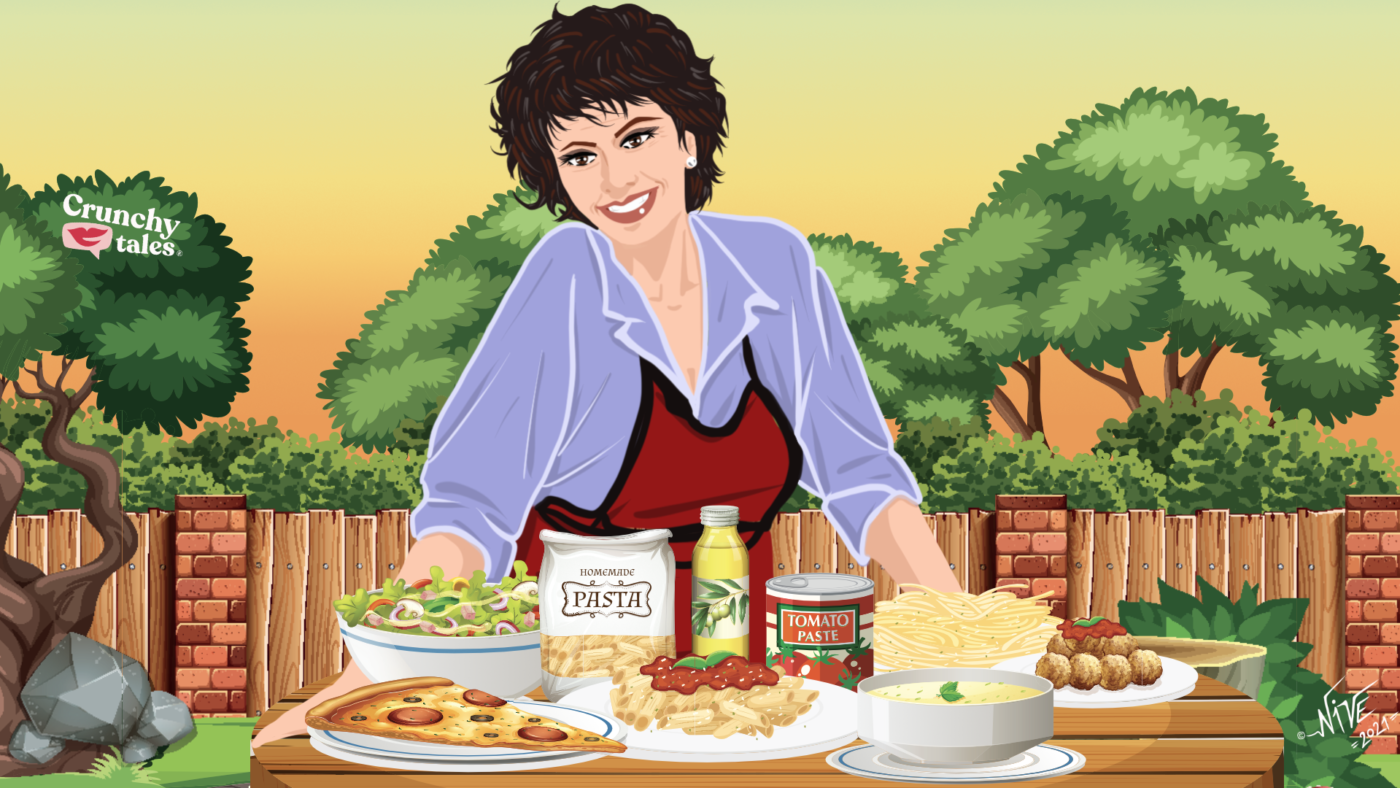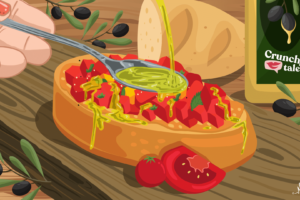Cooking From The Heart: Sophia Loren’s Best Kept Secret
If you somehow missed the wonderful and super crunchy Sophia Loren on BBC Radio 4’s Desert Island Discs last month, give yourself a treat and listen to it on catch up. It’s a fabulous 37 minutes of pure joy – one of the most elegant, honest and unmistakably Italian pieces of broadcasting I’ve ever been privileged to hear. Her musical choices were all great favourites of mine, and the fabulous Ms Loren herself came across as a remarkably vibrant and sharp 86 year old, with all the incomparable warmth and wisdom of a true Italian mamma. In particular, I was deeply moved by what she said about making a pizza.
To put this into context, her chosen luxury item (everyone who appears on the programme as a castaway gets to choose something luxury to take with them to the imaginary desert island) was a pizza oven, declaring that as a Neapolitan she couldn’t live without pizza and that she would take it with her to create a corner of her beloved Naples on the island and to make sure she would eat very well. In answer to Lauren Laverne’s question: “what makes a good pizza dough?” her answer was that making pizza is like a poem, that if you don’t feel like making pizza you shouldn’t really bother, but that if you do feel like making it “you will have the time of your life”.
This immediately resonated so strongly, as for me the essence of really good cooking is always to do it straight from the heart. I have always instinctively known this, especially when it comes to something like risotto, which absolutely requires complete commitment, but even the simplest combination of ingredients like a slice of bread and butter will taste so much better if you prepare it with intention and by engaging your heart. In all my cooking classes I have always told my students that the best possible results will come about when you cook something that you feel emotionally, personally attached to.
Years ago, on the original version of Masterchef, the wonderful presenter Lloyd Grossman would often admonish me, as one of the judges, by pointing out in response to my heartfelt comments with ‘Italians are just so emotional about their food!’ And yes, of course, we most certainly are. Even Sophia Loren is proudly emotional about her culinary heritage, and that is maybe precisely why Italian food is so loved and respected all over the world. If you want a further affirmation of the extraordinary emotional power of Italian food, and of every Italian’s profound connection to cooking and eating, take a look at Stanley Tucci’s 1996 film about two Italian businessmen and their restaurant in my favourite ever food-themed film: ‘Big Night‘.
As for Sophia Loren, she is an incredible actress and one of the most glamorous and inspirational women you are ever likely to encounter. I remember many years ago, at very different times, I was invited to a 2-day launch party of a brand new luxury Italian cruise liner in the port of Dover, where Sophia Loren and Andrea Bocelli were the guests of honour. At the press conference on the first day, a young local reporter timidly asked the great star how she managed to look so good despite her age, wondering if she might be able to pass on any tips for her readers. Sophia took her time to respond and finally said: “Well, you know, it’s in the genes. You either have the genes… or you do not.” I‘ve never, ever forgotten that, and seeing her now, still so beautiful and effortlessly proud of her lines and wrinkles in her latest film The Life Ahead directed by her son Edoardo Ponti, I am absolutely sure she is right. Bring on the pizza!
Special Treat – Puttanesca Sauce
Looking for an easy pasta sauce? Try this classic Italian recipe the Celebrity Chef Valentina Harris shared with CrunchyTales.
The whole point about this sauce is that it should be a strong tasting, punchy kind of sauce where all the ingredients are absolutely present – by which I mean that you should be able to taste each one individually and also as a whole. Named after the ladies of the nights, it has a certain vulgarity about it – but it’s not meant to be subtle, yet there is a real skill in making sure the flavours are all present and balanced. You can of course up the heat by adding more chilli if you wish.
RECIPE
Serves 4
2 cloves garlic, peeled and slightly crushed with the flat of the knife
8 tbsp extra virgin olive oil
6 anchovy fillets (either salted or canned in oil, rinsed and dried – please note that if they are salted, it is best to rinse them in milk to reduce the saltiness a little, and they may need a bit of trimming)
1 small hot dried red chilli pepper, chopped finely
1½ heaped tbsp rinsed and dried, roughly chopped salted capers, drained and rinsed (or capers in brine)
600 ml best quality passata
Very large pinch dried oregano
Sea salt and freshly milled black pepper
300 ml white wine
A handful of de-stoned good quality black olives*
A handful of fresh flat-leaf parsley washed and chopped
Extra virgin olive oil for dressing
Fry the garlic and half the oil together with the anchovy fillets and the dried chilli pepper, stirring until the anchovy dissolves into a puree.
Remove the garlic and discard. Add the capers and the passata and stir together really thoroughly.
Simmer for 5 minutes, and then add the oregano, seasoning, and wine. Allow the alcohol in the wine to boil off for about 2 minutes, and then reduce the heat, stir and leave to simmer gently for at least 15 minutes. Finally, add the olives. Simmer for a further 5 minutes, then remove from the heat.
Serve over freshly cooked pasta, (traditionally spaghetti or penne) tossed together with a little extra olive oil and a generous handful of freshly chopped flat-leaf parsley. Also good spooned over a grilled or pan-fried Tuna steak.
*Cheap black olives that are perfectly shaped and de-stoned are actually green olives masquerading as black olives. If you think about it, a black olive is much too soft to be de-stoned so perfectly and without a blemish or a bruise. They are green olives that have been soaked in chemicals including ferrous sulphate, which is why they taste of iron filings or rust. The answer is to buy black olives with the stone and remove it yourself or buy black olives without their stone that look a bit damaged.
Like this article? Sign up to our newsletter to get more articles like this delivered straight to your inbox.






